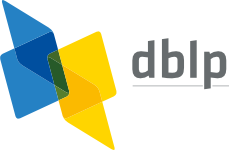Subjectivity in essay grading
automatic detection through language bias operator lexicon
Abstract
Essays are very important assessment tools for Brazilian students. Therefore, it is expected that the grading of these texts will be made with as little subjectivity as possible. However, in an analysis of a sample of grading sheet comments by evaluators, we have noticed a high degree of subjectivity in these texts. From this first analysis, carried manually, we proposed the hypothesis that this genre is more subjective than one would expect. In order to corroborate this hypothesis, we have drawn up a list of linguistic bias markers, divided into four categories: argumentative operators, presupposition operators, modalization operators, and opinion and value operators. This list was applied to a corpus of essay grading sheet comments by evaluators, using an automatic language bias detection methodology. From this, we were able to quantify the linguistic bias markers present in these texts. These bias markers were also analyzed in two other corpora: abstracts and product reviews published on internet sales sites. We have compared the percentage of these markers in evaluators’ comments with the percentage numbers of these markers in genres admittedly less subjective (abstracts) and admittedly more subjective (reviews). For such comparison, we have used boxplots, a statistical tool widely used in data comparison analysis. Our results indicated that the grading sheets, as for the number of bias markers, are closer to more subjective texts than to less subjective texts. This corroborates our hypothesis and indicates that these grading sheets present a high degree of subjectivity, closer to the degree of a more subjective text. Thus, we conclude that these grading sheets reflect the personal views of the evaluator, deviating from the correction criteria, which raises doubts about considering this genre an exempt and fair assessment instrument.
Copyright (c) 2020 Márcia Cançado, Luana Amaral, Evelin Amorin, Adriano Veloso, Heliana Mello

This work is licensed under a Creative Commons Attribution 4.0 International License.
Authors who publish with this journal agree to the following terms:
- Authors retain copyright and grant the journal right of first publication with the work simultaneously licensed under a Creative Commons Attribution License that allows others to share the work with an acknowledgement of the work's authorship and initial publication in this journal.
- Authors are able to enter into separate, additional contractual arrangements for the non-exclusive distribution of the journal's published version of the work (e.g., post it to an institutional repository or publish it in a book), with an acknowledgement of its initial publication in this journal.
- Authors are permitted and encouraged to post their work online (e.g., in institutional repositories or on their website) prior to and during the submission process, as it can lead to productive exchanges, as well as earlier and greater citation of published work (See The Effect of Open Access).













